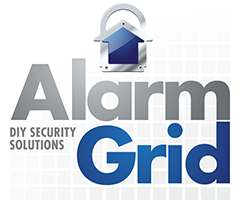1000-Feet 18/2 Stranded Alarm Wire
For anyone setting up their own hardwired security system, alarm wiring is something they will certainly want to have around. This equipment is used for connecting sensors, keypads, communicators, and other accessories to the wired panel. You will need to run wires from the panel to each individual device. This is a great way to fully integrate a wired security system with a building, and increase the property value. If you are good with wiring and are comfortable running wires, then there is no reason why you cannot install your own hardwired security system, all without hiring a professional.
The cabling listed on this page is for 1,000-foot rolls of stranded 18-gauge, 2-conductor wiring. You might think that 1,000 feet is a lot of wire. And really, it is. But if you work with cabling regularly, then you may be surprised just how quickly you go through it. That is why having a little bit extra on hand can always come in handy. At Alarm Grid we typically recommend stranded wire for DIY users. Stranded cabling is more forgiving, and it is less likely to snap or break when put under pressure. This can be important if you aren't used to wiring. Most professionals also prefer stranded wiring just because of how well it works.
In terms of thickness, this is 18-gauge wire. We have found that 18 AWG wire is the best for setting up a security system. This is because 18-gauge wiring offers the best balance of flexibility and maximum allowed wire runs. If you go with slightly thinner wire, such as 22-gauge wire, then you will be more limited based on how far you can run the wire. But the plus side is that the wire will be more flexible. And if you go with thicker wire, such as 16-gauge wire, then you can achieve longer wire runs, but the wire will be less flexible and more difficult to maneuver. For most installations 18-gauge or 22-gauge wiring is suitable.
You should also consider the fact that this is 2-conductor wiring. This makes the wire listed on this page best-suited for 2-wire connections. The cabling has two (2) inner wires, with one being black for negative (-) connections, and the other being red for positive (+) connectors. If you are using AC power, then polarity does not matter, and either colored wire can go to either connection. You can always double-up 2-conductor cabling and use it for 4-wire connections if desired. We also offer 4-conductor cabling for that purpose if desired. If you do decide to double-up your 2-conductor wiring, then make sure to keep track of the wires so that you do not mix them up. It may be helpful to label the wires so that you do not ever confuse them later on.


